When will we see an openly gay Premier League player?
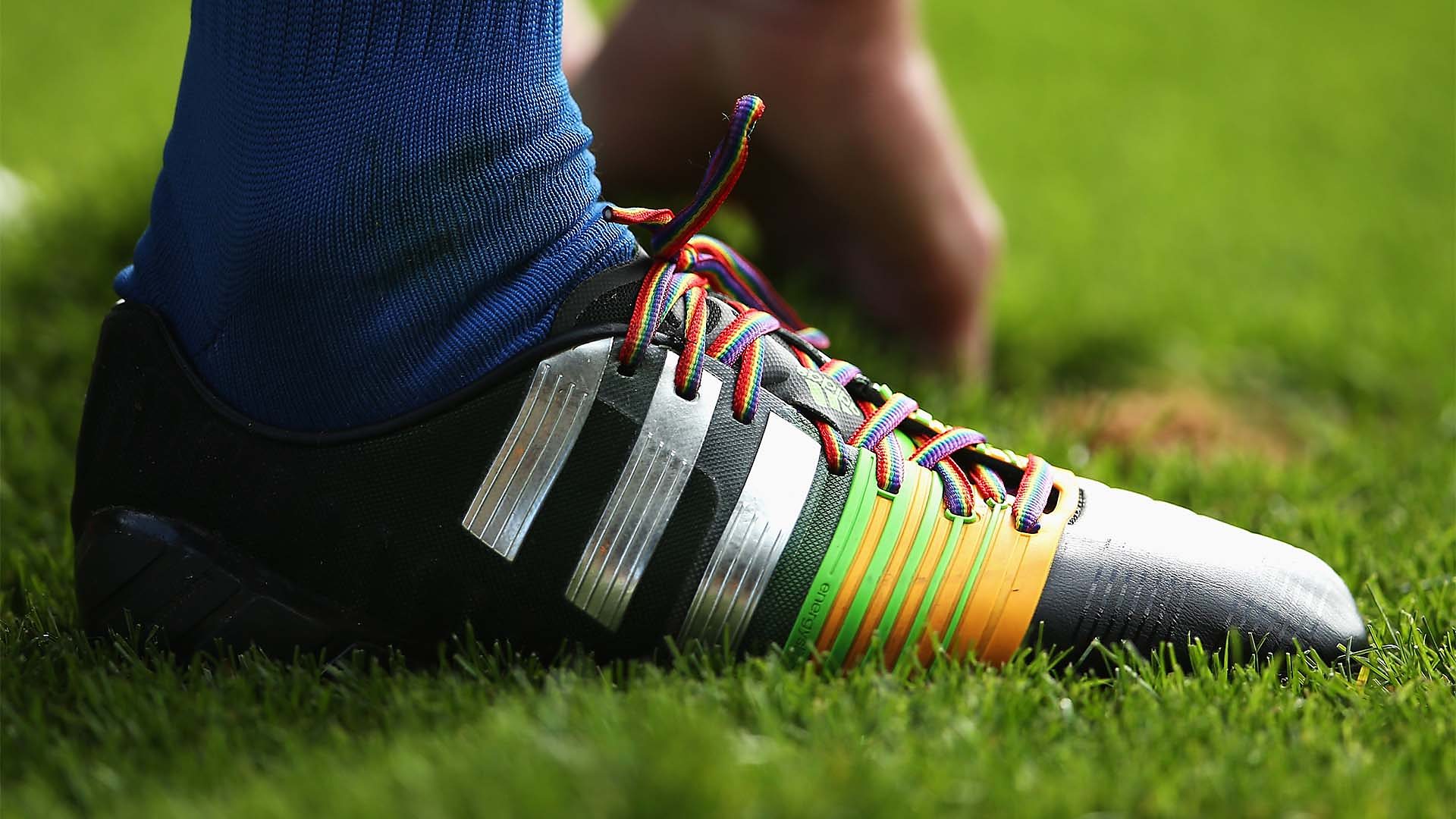
- Published
Back in November 2016, Premier League teams wore rainbow-coloured armbands and boot laces as part of Stonewallās Rainbow Laces anti-homophobia campaign.
It was seen as a big step for a sport that has struggled to tackle homophobia on the pitch and in the terraces.
But are shoelaces and armbands really the first-step in turning football into a space where LGBT+ players and fans feel comfortable enough to be open about their sexuality?
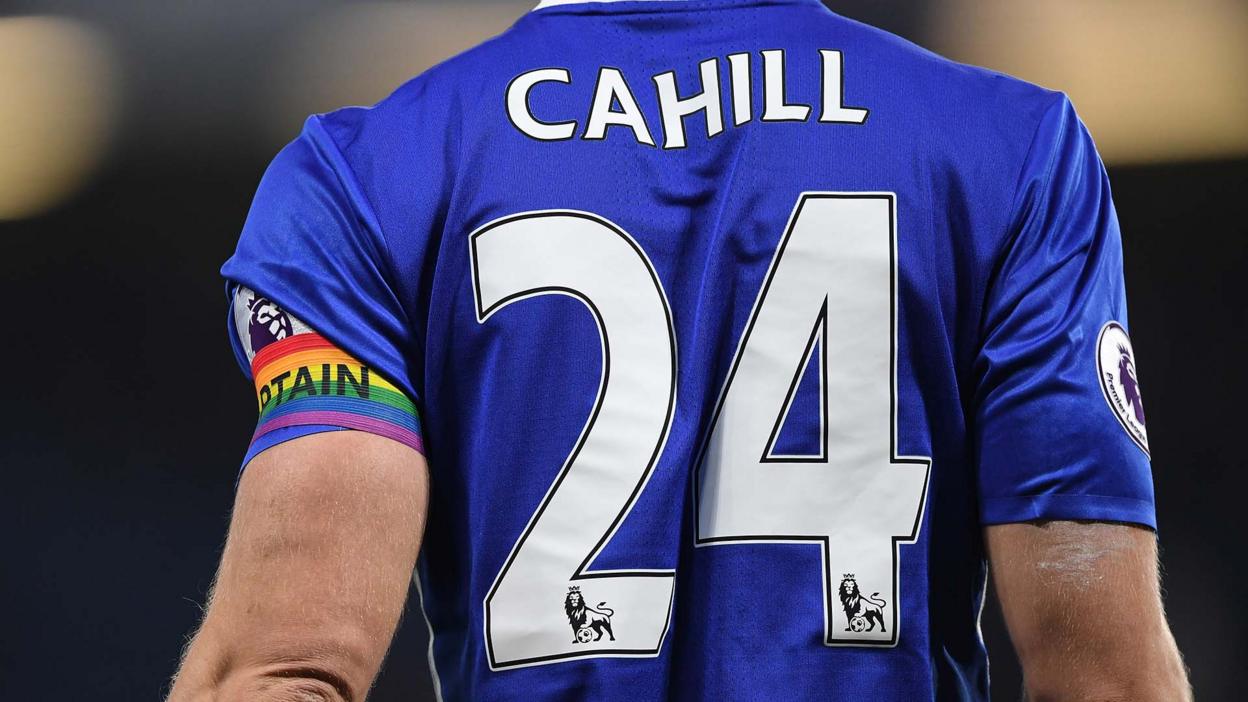
Last year, in a Stonewall/ICM survey, 51% of British sports fans said they had seen or heard anti-LGBT language or behaviour at an event, with 81% of the incidents taking place around football.
In February, a House of Commons inquiry called for a one or two-year ban for first-time offenders caught chanting homophobic abuse.
This week, at the Rainbow Laces Summit, the Premier League announced a new initiative with Stonewall on tackling homophobic language and abuse at grounds.
The campaign also wants to make it easier for any gay players to publicly discuss their sexuality if they wish to.
As yet, no one has.
Itās a shocking fact when you consider that , and there over 500 players in the Premier League.
Yet there is not one openly gay player playing in Englandās professional leagues, and only one Premier League player has ever come out as gay.
Former Aston Villa, Everton, and West Ham midfielder Thomas Hitzlsperger .
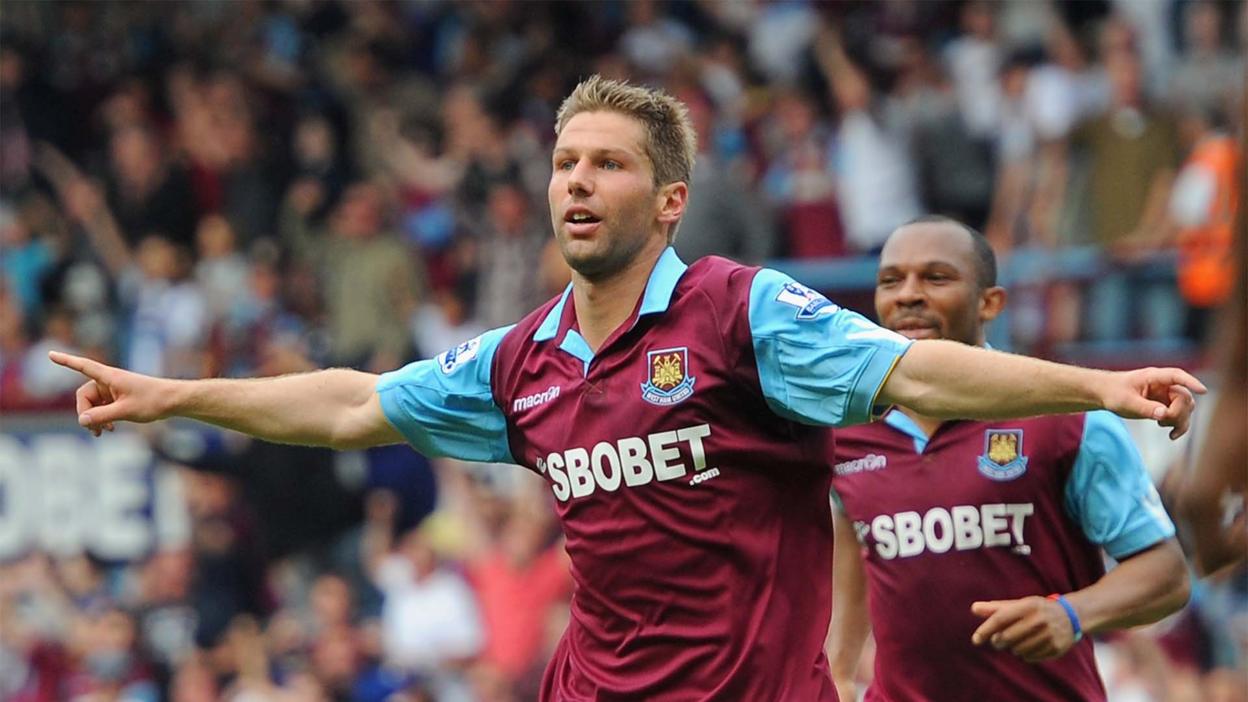
Hitzlsperger, who was capped 52 times by Germany, had considered coming out while at Wolfsburg in the 2011-12 season, but was advised not to by friends who warned of āa big waveā of negativity.
He said homosexuality was rarely a big topic in any of the dressing rooms he was part of.
āThe subject only came up when people were speculating about someone else's sexuality, but never in their presence."
Hitzlsperger said he was inspired to come out by sportsmen like basketball player John Amaechi, diver Tom Daley, Welsh rugby union star Gareth Thomas and former Leeds United and LA Galaxy player Robbie Rogers, who came out after leaving England. And he hoped that by coming out, he could do the same for other players.
However, last year, FA Chairman Greg Clarke said it would be given the abuse they would receive on social media and from āa vocal minority on the terracesā.
āI knew fans everywhere were going to make my life a miseryā
Rumours about a playerās sexuality can circulate as gospel among team-mates, opponents and fans, even if they are completely unfounded.
Just ask Graeme Le Saux.
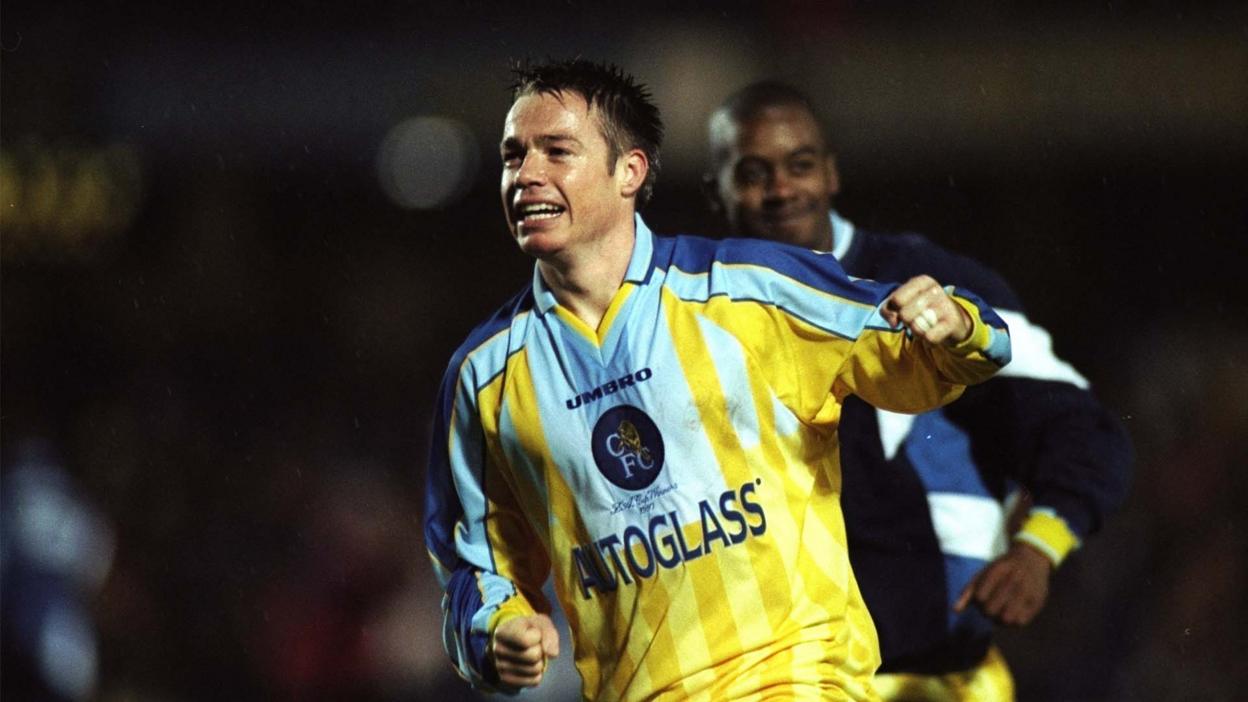
The former Chelsea and Blackburn left-back is heterosexual, but was regularly taunted by his own team-mates, opposing players and fans for supposedly being gay.
Their evidence: Le Saux read the Guardian newspaper, visited art galleries and with some male friends.
Now a commentator and pundit, Le Saux said that the more his career progressed and the more famous he became, the more it became an issue.
In his 2007 autobiography, he recalls the first time he heard rival West ham supporters singing āLe Saux takes it up the a***,ā and how he stood still in shock.
āI knew fans everywhere were going to make my life a misery.ā
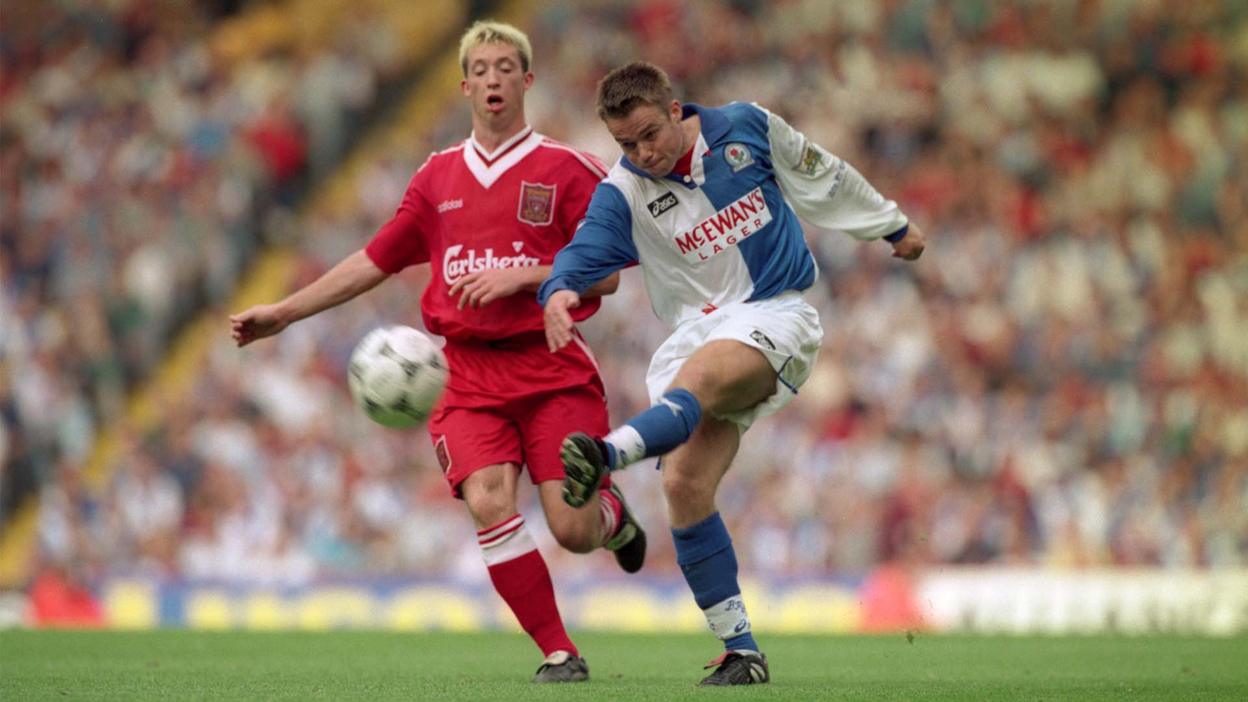
Le Saux wasnāt gay, but the stigma surrounding homosexuality was enough for it to stick, so much so that Robbie Fowler taunted him by bending over and goading him during a Chelsea v Liverpool game in 1999 - something he has since apologised for.
That negative attitude towards a player's perceived sexuality still permeates among fans. All too often, it's still used as a way to denigrate an opposing player.
Many football fans could name at least one player that theyāve heard talked about as being the 'boyfriend' with an openly gay celebrity.
āI begged him not to come outā
Former Norwich City and Nottingham Forest striker Justin Fashanu ā who was the worldās first Ā£1m black player - came out as gay in 1990.
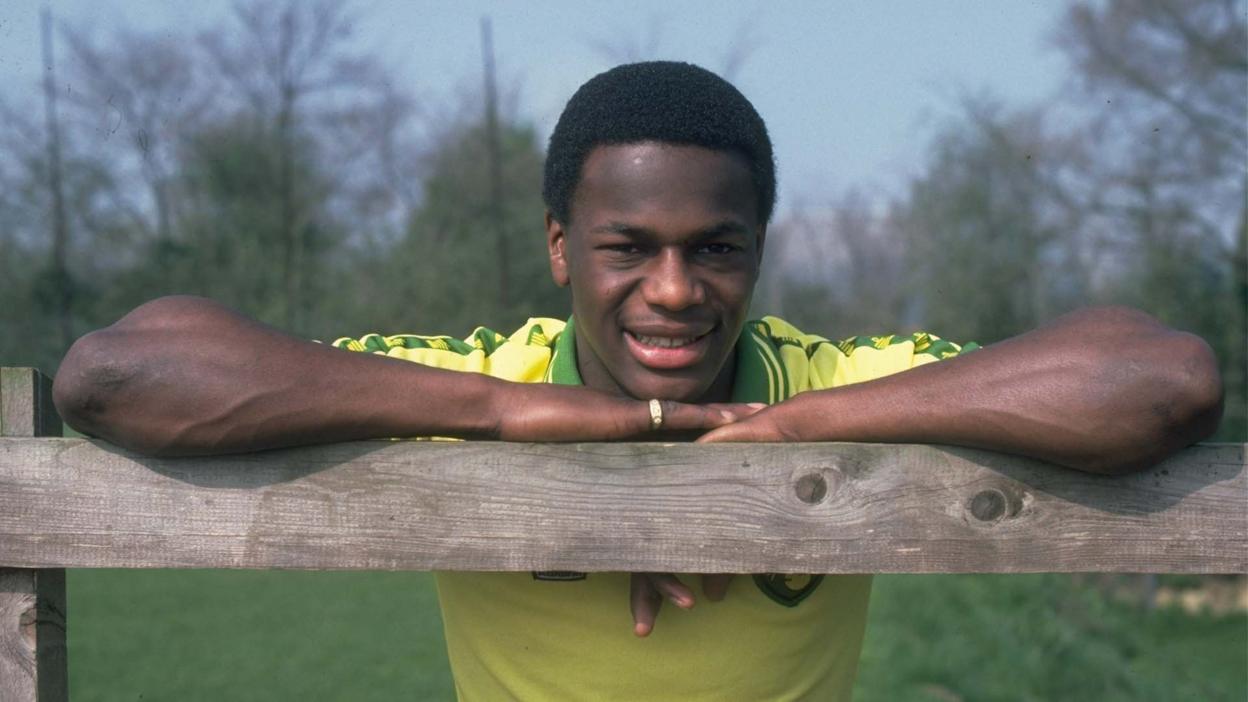
His own brother - fellow footballer, John -
āI begged him, I threatened him, I did everything I could possibly do to try and stop him coming out.ā
āI gave him the money because I didnāt want the embarrassment for me or my family. Had he come out now, it would be a different ball game. He'd be hailed as a hero".
Justin played on around the world at a number of clubs, but could not get another full-time contract. .
āThe last tabooā
This week at the Rainbow Laces Summit, people from around British sport gathered to discuss how to make it more LGBT-inclusive.
There was plenty of advice for football from other sports stars and organisations.
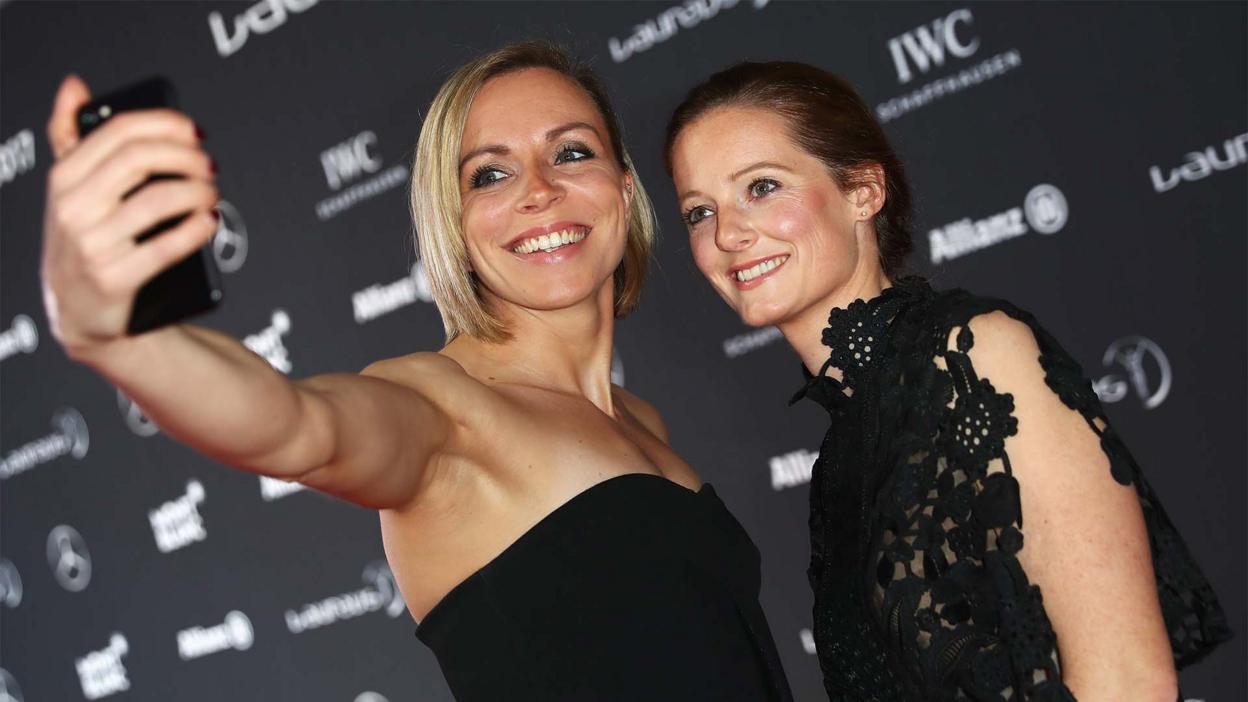
Two of Team GBās gold-medal hockey stars from Rio, Kate and Helen Richardson-Walsh, who are married, talked about how theyād heard coaches earlier in their careers describe things as 'so gay'.
But things have moved on in hockey since the Sydney Olympics in 2000, when the sexuality of players was as a reason for the GB teamās poor performance.
"Sexuality came under the huge bracket of diversity and difference in our squad," says Kate. "To be aware of each other in that close-knit environment is so important when you play and train together as a team."
"Throwaway, banter-type, locker-room comments have an immediate, strong and lasting effect on people hiding parts of themselves and parts of their lives."
āMental health is becoming more talked about, but I feel LGBT stuff is going to be the last taboo.ā
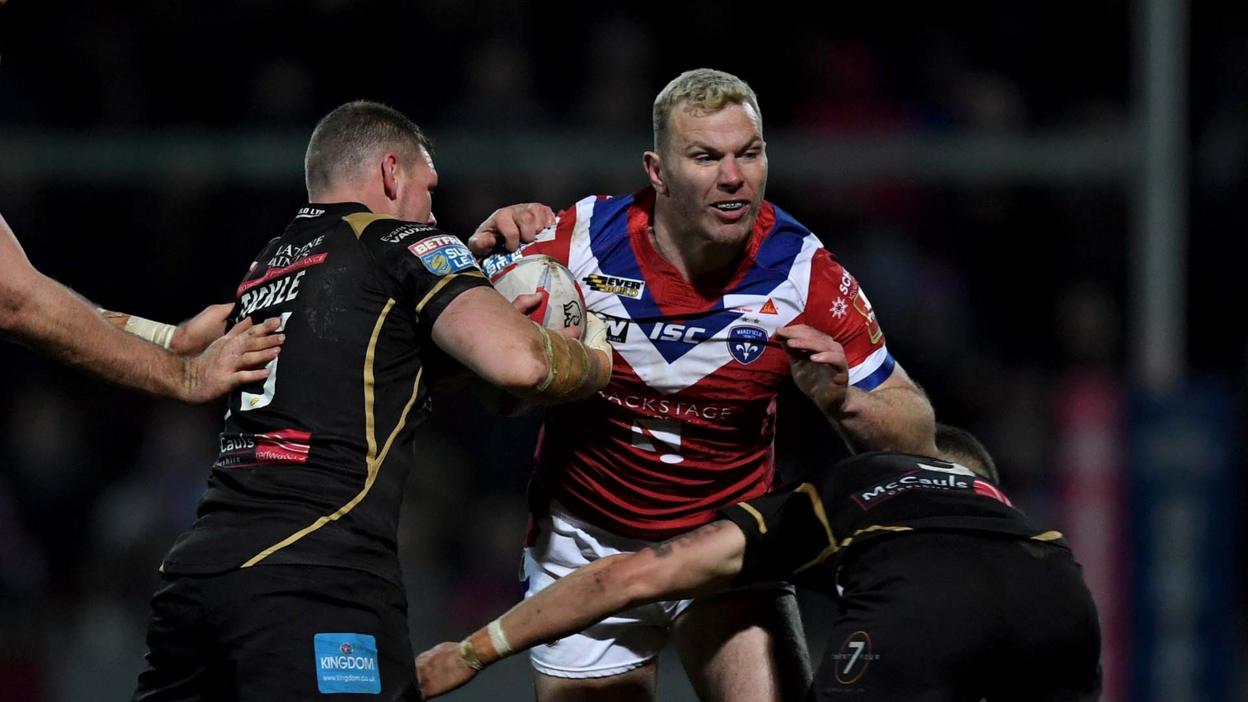
Is it a male problem then?
Rugby League player Keegan Hirst has said that he
He's now playing at the top level in the Super League where, even in the most macho of environments, the response to him after coming out has been incredibly positive.
So what is holding football back?
Two decades
FA Chairman Greg Clarke said at the summit that menās football is ātwo decades awayā from becoming LGBT-inclusive.
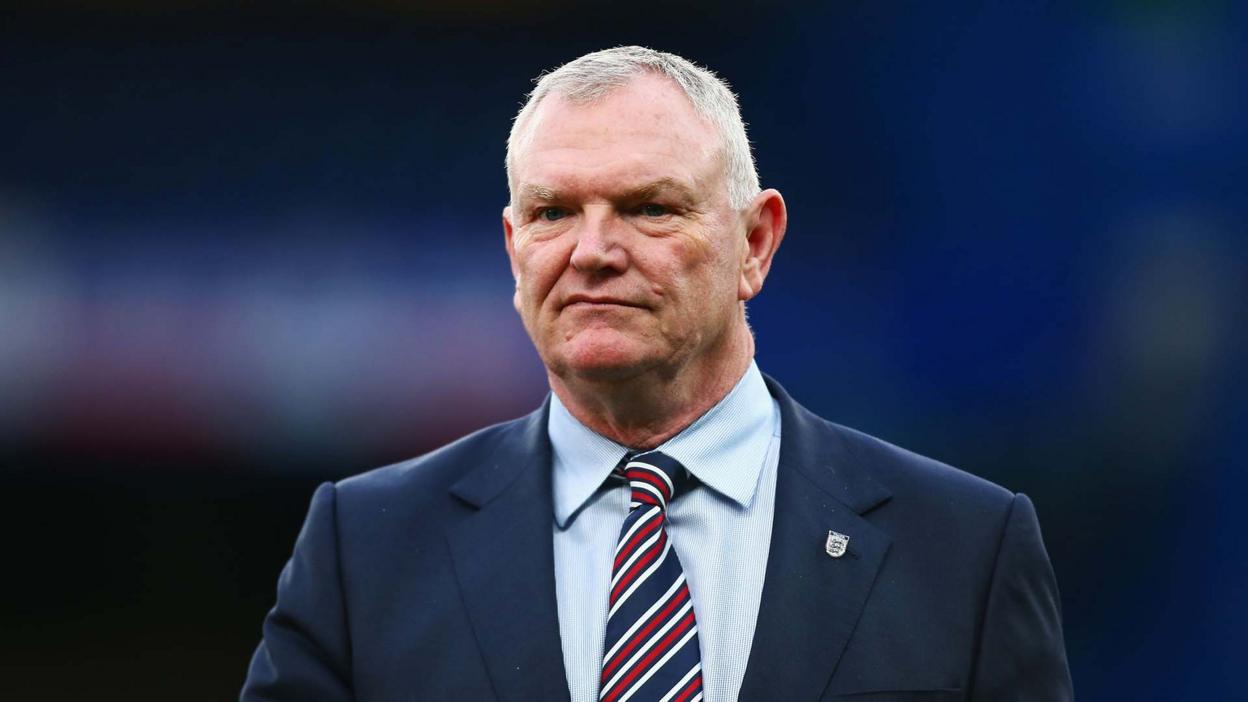
Clarke said heās been trying to talk to gay players but they are "reticent" to engage with him about coming out.
He admits something is ānot rightā with the menās game when there are currently no openly gay players in the top four tiers, and he wants it to emulate the inclusive feel of womenās football.
Former England women's captain Casey Stoney came out publicly in 2014, while still playing for the national team.
āI was at the Womenās FA Cup final and it was great, inclusive ā there were gay people, straight people, transgender people, and it was a wonderful occasion,ā said Clarke.
āFor me, when the finals in the menās competitions have the same feel, we will have succeeded.ā
But to many, that feels a long way away.
Information and support on LGBTQ+ issues is available from “óĻó“«Ć½ Action Line.